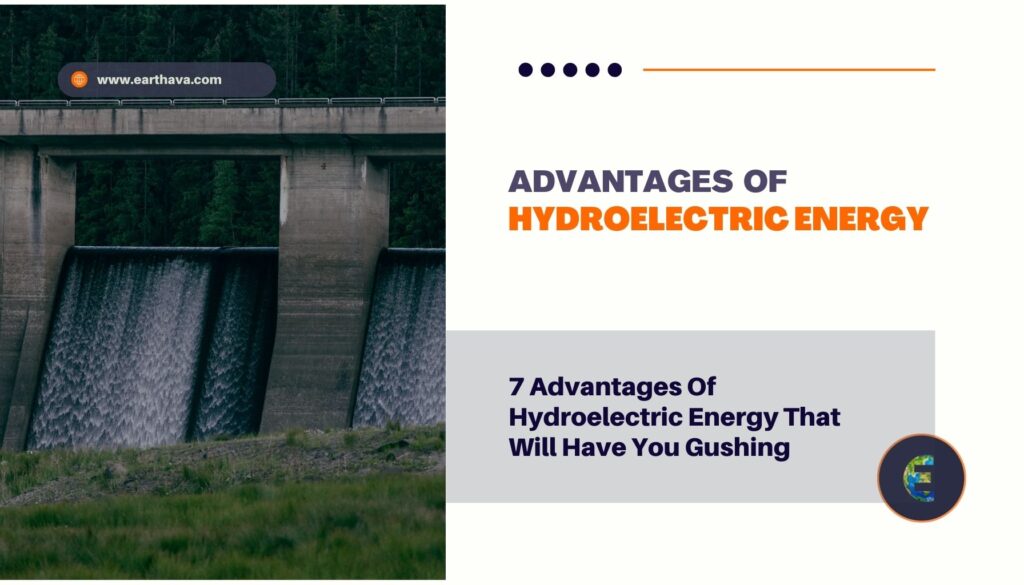What are the advantages of hydroelectric energy? Hydropower offers renewable, low-emission electricity with reliable output, flexible grid support, long-lasting infrastructure, and valuable ecosystem and economic benefits. In this article, we’ll walk through these key advantages, explaining how hydropower works, why it remains vital for clean energy, and how it helps balance modern grids.

Around 77% of the United States energy in 2017 came from fossil fuels. Because relying on coal, petroleum, and gas has negative consequences, renewable energy has become more appealing.
One option to get away from fossil fuels is harnessing the natural power of water.
Still, wondering if renewable energy is worth it? Check out the seven advantages of using hydroelectric energy below. We bet we know what you will think by the end of it!
1. 100% Renewable
Any energy created from flowing or running water is completely renewable. This means it won’t run out.
Better yet, when facilities are built with reservoirs, they can create more energy for high-demand periods. Reservoirs also allow energy to be created even in times of drastic drought.
2. Safety
Coal mining and oil drilling are considered very dangerous jobs. Working on rigs with flammable materials and heavy machinery is not for the faint of heart.
This is another reason harnessing water for energy is beneficial. There is no flammable gas to be handled, nor do people need to constantly operate large machines.
3. Hydroelectric Energy Is Flexible
Depending on the need, water flow can be controlled in power facilities to limit the waste of energy. When lower levels are needed, making adjustments allows for conservation in case a high demand pops up.
4. Good for the Environment
Relying on this energy source means no added pollution while using. The only impact on the Earth is when a power plant is first built. It is a completely clean energy source.
5. Stable Prices
Because running water from rivers and streams is considered a domestic resource, market changes will not impact the price. This differs from energy sources like gas or petroleum.
Costs for consumers will never rely on what is happening internationally or be dependent on the current political and trade climate.
6. Reliable
Nobody likes it when their power cuts out. Hydropower is incredibly reliable and steady in its energy output. As long as there is water, there will be power.
Hydropower plants can typically go from minimal to major power output fairly quickly. This means they can create power right away in response to a power outage.
This makes them useful in the event of a large-scale power grid issue or catastrophe.
7. Long-term Investment
A final reason to use water to generate energy is the benefit for the future. Hydroelectric developments can last between 50 and 100 years! This means creating one energy plant will provide valuable energy for generations.
Installations can also be created in a manner that allows for future technological advances.
Harness the Flow of Water and Turn on the Lights
It should be clear by now all the amazing benefits of using hydroelectric energy. Using water to power our everyday needs is a smart and future-oriented way to preserve the environment.
Are you interested in other renewable power sources? Be sure to check out these other energy sources and how they are expected to grow over the next few years!


